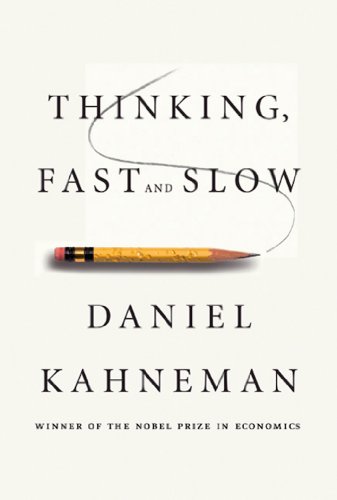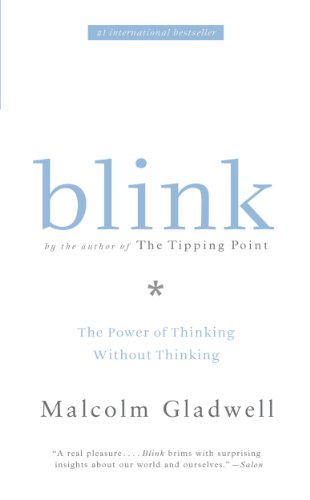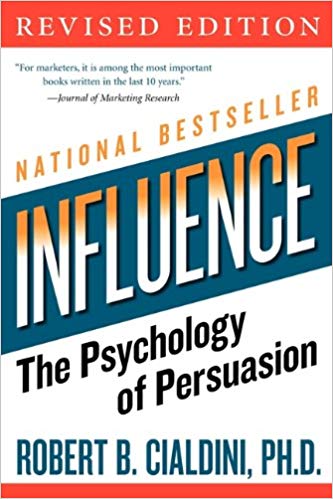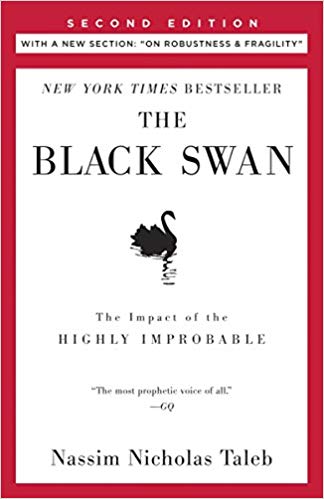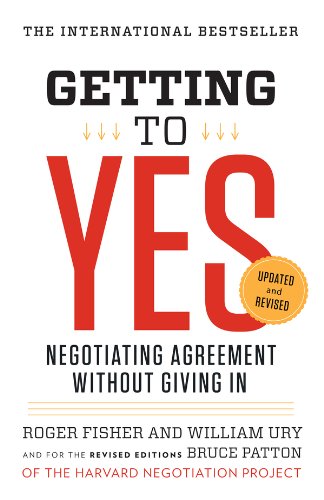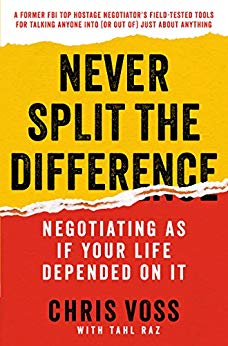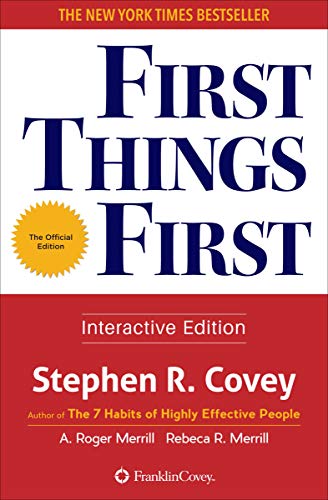

This article gives you a glimpse of what you can learn with Shortform. Shortform has the world’s best guides to 1000+ nonfiction books, plus other resources to help you accelerate your learning.
Want to learn faster and get smarter? Sign up for a free trial here .
Are you a good decision maker? Do you ever wonder how improved decision-making skills could make you more successful, professionally and personally? The decisions you make today have far-reaching consequences, and research indicates that though we’re far more irrational than we’d like to think, there are proven ways to learn how to make better decisions, many of them recorded by experts in some of the best books on decision making. But finding the best, most insightful, and most practical books on decision making can be difficult, so we’ve done the hard work for you, narrowing down the extensive list to the absolute best books on decision making.
Here’s our carefully researched list of the 9 best books on decision making. To compose this list, we used quantitative criteria such as:
- High-quality recommendations from successful leaders and thinkers like Bill Gates, Tim Ferriss, and Barack Obama.
- Number of weeks on bestseller lists like the New York Times
- Common perception and ratings by common readers, from networks like Amazon and Goodreads
Don’t have time to get the benefits of reading all the best books on decision making? That’s where Shortform comes in. With Shortform, you can get the key lessons from the best books on decision making in minutes, not in hours. Our experts condense the key lessons from decision-making books like these into an efficient summary. Check out our high-quality summaries of these 9 books to see if you can learn more quickly.
1. Thinking, Fast and Slow, by Daniel Kahneman
We’re so self-confident in our rationality that we think all our decisions are well-considered. When we choose a job, decide how to spend our time, or buy something, we think we’ve considered all the relevant factors and are making the optimal choice. In reality, our minds are riddled with biases leading to poor decision making. We ignore data that we don’t see, and we weigh evidence inappropriately.
Thinking, Fast and Slow is a masterful book on psychology and behavioral economics by Nobel laureate Daniel Kahneman. Learn your two systems of thinking, how you make decisions, and your greatest vulnerabilities to bad decisions.
Thinking, Fast and Slow is reportedly a favorite of Barack Obama’s, and he included it in his list of “required reading” in 2016. It’s clearly one of the best books on decision making valued by leaders.
2. Blink: The Power of Thinking Without Thinking, by Malcolm Gladwell
In Blink, Malcolm Gladwell explores the decisions we make in the blink of an eye. We’re often taught to view these snap judgments as inferior to decisions based on rational analysis, but Gladwell shows us that decisions made intuitively can be as good as, and sometimes better than, conscious decisions. Blink delves into how and why we make the gut decisions we do, when it’s unsafe to trust our guts, and what we can do to make all our snap judgments smarter, less biased, and more efficient.
On his podcast, Tim Ferriss said of Gladwell that he’s “very, very good at taking what could be dense, impenetrable material or overwhelming material and making it a story that is easy to consume as storytelling.”
3. Nudge: Improving Decisions About Health, Wealth, and Happiness, by Richard H. Thaler and Cass R. Sunstein
Every day we’re constantly faced with choices—what to order at a restaurant, what clothes to buy at a store, what show to stream when we get home from work. We’re so used to making choices that we’re not even aware of the way those choices are presented. If grocery stories didn’t stock candy at the register, would we eat less of it? If we had to “opt out” of being organ donors rather than “opt in,” would the organ donor pool grow?
In Nudge, Nobel Prize–winning economist Richard Thaler and renowned legal scholar Cass Sunstein examine how certain choice structures—“architectures,” in their terms—can “nudge” us toward better decisions.
In this book, you’ll learn how flesh-and-blood humans differ from the humans studied in economics, why people are so bad at saving, and how to revitalize the institution of marriage (hint: abolish it).
The book was so popular by 2009 that then-president Barack Obama appointed author Cass Sunstein as the head of the Office of Information and Regulatory Affairs, “charged with using nudges to improve regulations.” It’s also impacted policy in Germany, Canada, the UK, and Qatar, making it a hugely successful book on decision making.
4. Principles: Life and Work, by Ray Dalio
Ray Dalio is founder of Bridgewater Associates, the largest hedge fund in the world. In his book Principles, Dalio shares the guiding principles powering his success and Bridgewater’s.
Principles is a master class in rational thinking. The main theme is that finding truth is the best way to make decisions, and that ego, emotion, and blind spots prevent you from discovering the truth. Dalio shares his major strategies to circumvent these weaknesses, including radical open-mindedness, thoughtful disagreement, radical transparency, and believability-weighted decision making.
Tim Ferriss says of Principles, “I highly recommend this book. It has already changed how I think about making decisions in my life and in my business, how I think about managing, how I think about managing, how I think about communications between teams. I could go on and on and on.”
Bill Gates has said of the author, “Ray Dalio has provided me with invaluable guidance,” and Arianna Huffington wrote of Principles, “Beautifully written and filled with such wisdom.”
5. Influence: The Psychology of Persuasion, by Robert B. Cialdini
Have you ever wondered how persuasion works? How are salespeople, fundraisers, and politicians able to lure us into compliance — without even thinking that we’re being manipulated?
This is what Robert Cialdini’s Influence: The Psychology of Persuasion sets out to answer. The book shows how the persuaders of the world use our basic mental instincts against us, transforming them into tools of compliance. By exploring the origins and common uses of six principles of persuasion — reciprocity, commitment/consistency, social proof, liking, authority, and scarcity — you’ll learn to spot when you’re being hustled and discover how to beat the persuaders at their own game.
Influence is on Good to Great author Jim Collins’s recommended reading list, and billionaire and Vice Chairman of Berkshire Hathaway Charlie Munger reportedly gives away more copies of Influence than any other book. Influence is clearly considered by top leaders as one of the best books on decision making.
6. The Black Swan: The Impact of the Highly Improbable, by Nassim Nicholas Taleb
Black Swans are extremely unpredictable events that have massive impacts on human society. These include positive Black Swans, like the invention of the Internet and the discovery of antibiotics, as well as negative Black Swans, like the 2008 recession.
One of the reasons we make bad decisions is that we don’t take Black Swans into account. Black Swans compel people to explain why they happened—to show, after the fact, that they were indeed predictable. Taleb’s thesis, however, is that Black Swans, by their very nature, are always unpredictable. Furthermore, because of our cognitive biases, we’re more vulnerable than ever to misunderstanding Black Swans and their impact.
Learn what Black Swans are, why we’re susceptible to them, and how best to prepare yourself for the unpredictable.
Jeff Bezos said of The Black Swan, “The key thing about a book is that you lose yourself in the author’s world.”
Bill Gates wrote of the book, “The Black Swan is a thought-provoking exercise, prompting us to reexamine how we predict the future. Taleb argues that ‘history does not crawl, it jumps.’ We are pattern-seeking creatures, and put a lot of faith in what we’ve seen in the past. Yet this same outlook, while valuable, can blind us to many of the future’s possibilities. This book is a great way to shake up some of your ingrained beliefs, and help you start thinking about how to be ready for when these random events occur.”
7. Getting to Yes: Negotiating Agreement Without Giving In, by Roger Fisher and William Ury
Getting to Yes
by Roger Fisher and William Ury
30 min reading time
32.3k reads
audio version available
In business and in life, decisions are often made as a group. Getting to Yes by Roger Fisher and William Ury is a practical guide to negotiating more effectively whether you’re haggling over a price, negotiating for a pay increase, or debating how to divide the housework. The authors propose an alternative to traditional adversarial bargaining, which often results in unfair agreements and strained relationships. Principled negotiation, by contrast, aims to reach wise and fair agreements efficiently and civilly. In addition to walking you through their method, the authors offer numerous tips and techniques for handling challenging negotiations. Anyone can use their method, under any circumstances.
Charlie Munger recommends Getting to Yes in his book Poor Charlie’s Almanack.
Alan Pierce, CEO of Ansuz Balder Magni Investments, says, “The underlying premise of the book is keeping a flexible mind and making a real effort to understand someone’s underlying motivations as well as what they are trying to accomplish. This baseline will help you to find common ground in difficult negotiations and create mutually beneficial and long-lasting agreements….This book has also helped me in creating mutually beneficial partnerships with partners and investors in my company, ABM Investments.” Because you need to come to mutual decisions no matter what you do for a living, Getting to Yes is one of the best books on decision making.
8. Never Split the Difference: Negotiating as if Your Life Depended on It, by Chris Voss and Tahl Raz
Never Split the Difference
by Chris Voss and Tahl Raz
33 min reading time
61.1k reads
audio version available
Never Split the Difference makes the case that decision-making is highly irrational and emotionally-driven. Therefore, skilled negotiators learn to tap into the deeper emotional needs of their counterparts: what do they really want? What do they really fear?
Using tactics like active listening, mirroring, and calibrated questions, talented negotiators get what they want by demonstrating empathy and building rapport. This, in turn, creates the trust that enables the counterpart to open up, let their guard down, and reveal key information.
Drive author Daniel H. Pink says Never Split the Difference is “a different kind of business book—one that emphasizes the importance of emotional intelligence without sacrificing deal-making power. It comes from the pen of a former hostage negotiator—someone who couldn’t take no for an answer—which makes it fascinating reading. But it’s also eminently practical. In these pages, you will find the techniques for getting the deal you want.”
Adam Grant, author of Originals and Give and Take, says of Never Split the Difference, “This book blew my mind. It’s a riveting read, full of instantly actionable advice—not just for high-stakes negotiations, but also for handling everyday conflicts at work and at home.”
9. First Things First, by Stephen R. Covey and A. Roger Merrill
Do you have trouble making decisions because you don’t know what to prioritize? Do you feel like there just aren’t enough hours in the day? That you’re constantly checking things off your to-do list but still don’t have enough time for the important things? Your problem might be that you’re working efficiently, but not effectively. Getting your priorities straight can make decision making a lot easier.
In First Things First, Stephen R. Covey, author of The 7 Habits of Highly Effective People, presents a time-management approach that focuses on priorities, or “first things.” This approach teaches you to use your time effectively, meaning you focus more on what you’re spending your time on than how much time you’re spending. Learn how to identify your priorities; schedule your time at the daily and weekly levels; and find win-win opportunities among people.
Larry King said of the book, “Covey has reached the apex with First Things First. This is an important work. I can’t think of anyone who wouldn’t be helped by reading it.” If getting your priorities straight hinders your ability to choose, First Things First is one of the best books on decision making.

Want to fast-track your learning? With Shortform, you’ll gain insights you won't find anywhere else .
Here's what you’ll get when you sign up for Shortform :
- Complicated ideas explained in simple and concise ways
- Smart analysis that connects what you’re reading to other key concepts
- Writing with zero fluff because we know how important your time is

